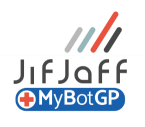In the evolving and time-critical landscape of NHS primary care, efficient allocation of resources and time is paramount. Automation has emerged as a powerful solution, aiding practices in optimal patient care. Discerning the best-automated processes is critical to ensure opportunities are not missed. Here’s a strategic approach to making those crucial decisions.
Identify Repetitive and Time-Consuming Tasks
Begin by evaluating repetitive tasks that consume substantial time or require highly skilled people who can do other work. These tasks (Clinical or Administrative) are usually the low-hanging fruits for automation, enabling staff to focus more on patient-centric activities, improving overall care quality and patient satisfaction.
Assess Impact on Patient Experience
Patient experience is pivotal in primary care. Prioritise automating processes that directly enhance patient experiences (in terms of better patient experience or freeing staff time to do more work), such as reducing wait times, quicker turn around of work, improving information accuracy, and facilitating smoother interactions with healthcare providers. For example, automated Recalls (LTC), repeat prescriptions, Filing of blood results, filing and Health Checks are prime examples of decreasing no-show rates and optimising appointment scheduling.
Determine ROI Potential
Consider automation’s financial implications and potential Return on Investment (ROI). Processes that, when automated, significantly reduce operational costs, enhance patient care, or increase revenue. For instance, automating blood filing standardises the approach & frees clinical time.
Evaluate Scalability
Potentially, opt for processes that, when automated, can scale with the practice’s growth. Scalable automation solutions can adapt to increasing patient numbers and expanding services, ensuring long-term sustainability and effectiveness. For example, automation of Normal Blood Filing or Recalls LTC can seamlessly accommodate growing patient databases and diverse healthcare needs.
Assess Legal and Ethical Implications
Regulatory compliance and ethical considerations are paramount within the healthcare sector. Any process selected for automation must adhere to data protection laws, patient confidentiality norms, and other relevant regulations, such as the General Data Protection Regulation (GDPR) and the NHS Digital guidelines.
Involve Stakeholders
Involve diverse stakeholders, including clinicians and administrative staff, in decision-making. Their insights can reveal pain points, practicalities, and preferences, aiding in identifying processes that, when automated, would yield the most substantial benefits and user satisfaction.
Test and Refine
Once processes are identified for automation, they should be meticulously tested to ensure accuracy, efficiency, and user-friendliness. Time must be taken to plan how work will be done at the practice once supported by automation, i.e. what work still needs to be done manually. Continuous refinement based on feedback and performance data is crucial to align the automated process with the evolving needs of primary care practices and their patients.
Automation is integral to advancing primary care in the UK, promising enhanced efficiency, patient satisfaction, and healthcare outcomes. Identifying the right processes to automate necessitates a thorough evaluation of task repetitiveness, patient impact, financial ramifications, scalability, legal compliance, practice needs, and adaptability.
By judiciously automating processes in primary care, healthcare providers can allocate resources more effectively, ensuring that human touch and expertise are reserved for areas where they are most needed, such as patient interaction and clinical decision-making. This strategic approach to automation fosters a more responsive and resilient primary care system. It aligns with the overarching vision of the NHS to provide high-quality, accessible, and equitable healthcare services for all. In an era where technology and healthcare converge, making informed and strategic choices in automation will pave the way for a more efficient and patient-centred primary care environment, aligning with the long-term objectives of healthcare provision in the UK.
JifJaff offers a fully managed and scalable solution for NHS Primary Care. Our team of experts handle all processes from implementation to maintenance, allowing you to focus on what matters most – your business! Our solution grows with you from practice, or large ICS with complex needs, we adapt to meet your requirements. With our comprehensive solutions, you can save time, reduce costs, and streamline your operations knowing you are fully supported.
